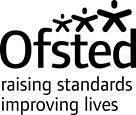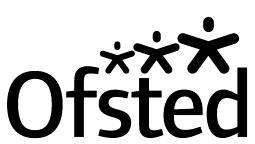Inspection of an outstanding school: Holy Trinity Catholic School, Chipping Norton
24 London Road, Chipping Norton, Oxfordshire OX7 5AX
Inspection dates: 13 and 14 March 2023

Outcome
Holy Trinity Catholic School, Chipping Norton continues to be an outstanding school.
What is it like to attend this school?
Pupils learn how to make a positive difference at this inclusive school. They thrive due to strong relationships and a commitment to excellence that is shared by the whole school community. Pupils, including those with special educational needs and/or disabilities (SEND), achieve exceptionally well. Children in the early years develop confidence and begin to make rapid progress within the curriculum from the moment they start school. Pupils feel safe and are happy to be at school. Bullying or unkind behaviour, no matter how minor an incident may seem, is not tolerated. Staff are considerate and determined to resolve any issues that occur. One pupil said, ‘If a problem happens, teachers dig, find the little parts and then solve it.’
Pupils are positive role models for each other. Behaviour is a strength in lessons, around the school and on the playground. Pupils love the responsibilities they have such as junior leaders, ‘buddies’ and house captains. Leaders promote care and kindness at every opportunity. Pupils enjoy community events such as ‘Memory Lanes’, a Chipping Norton theatre production involving pupils and residents from the local care home. Pupils are proud to represent their school through many sports, art and music events.
What does the school do well and what does it need to do better?
Leaders are ambitious for every pupil. They have crafted an inspirational curriculum that equips pupils with the essential knowledge and skills they need to be prepared for their next stage of education. For example, mathematics lessons are inspirational and ensure that all pupils succeed. Meticulous teaching of phonics and early reading unlocks education for all pupils, regardless of any barriers to learning. Leaders highlight key vocabulary and use this to help staff build clear, connected sequences of lessons. These are linked to a thoughtful programme of educational visits and visitors to the school that help to make learning memorable. For example, pupils enjoy visiting the Houses of Parliament when learning about democracy. There are many artists, authors and musicians that come to the school to help bring learning to life.
Leaders place learning to read at the heart of the school’s work. They develop a love of reading through the use of engaging books that celebrate stories and cultures from around the world, including a thoughtful menu of traditional tales and classic works such as Shakespeare. Staff use library visits and ‘Mystery Reader’ events to bring pupils, parents and grandparents together, sharing literature and the magic of storytelling. In phonics, pupils regularly read books that are matched to the sounds that they are learning. Highly skilled staff support any pupils who are at risk of falling behind. This means that all pupils learn to read quickly and fluently.
Staff have developed expert subject knowledge across the curriculum. Leaders provide a range of training opportunities with a relentless focus on refining teaching approaches and developing the curriculum. Staff target assessments effectively. Teachers check pupils’ errors and misconceptions and use them as starting points to clarify understanding and highlight new learning. Pupils are highly articulate, confident to discuss ideas together and are keen to offer contributions to lessons. Leaders ensure that pupils with SEND have their needs identified quickly so that pupils receive the correct support. There is a commitment to ensuring that there is no ceiling on learning for any pupil. One member of staff said, ‘All the team aim to get the best out of everyone.’
Leaders develop pupils’ talents and interests in an exemplary way. Pupils with SEND and from disadvantaged backgrounds consistently benefit from opportunities which include learning musical instruments, playing competitive sports and developing artistic knowledge and skills. Clubs such as choir, football, rugby, athletics and hockey give the chance for all pupils to represent their school. There is a clear focus on seeking and acting on pupils’ views to develop a programme of experiences linked to the school’s vision. Pupils perform at the local Chipping Norton music and literary festivals. They share their ideas and help to shape the programme of wider development at the school. These experiences allow pupils to grow, feel a sense of belonging and want to contribute to their school community in positive ways. Pupils are very well prepared for life in modern Britain.

Governors and leaders share an ambitious vision for the school. Through supportive ‘check-ins’ , leaders and governors prioritise workload and well-being for all staff. Staff are extremely proud to work at the school. Parents are highly supportive of school leaders. One parent said, ‘Pupils are treated as individuals. Their emotional well-being is just as important as their academic achievement.’
Safeguarding
The arrangements for safeguarding are effective.
Leaders make safeguarding a priority at the school. Staff take part in regular training and understand their responsibilities. Staff know families well and, through strong relationships, are alert to any changes that could indicate a pupil is at risk. Detailed records show that concerns are passed on swiftly and there is close work with partner agencies to help keep children safe. Leaders are tenacious and not afraid to go above and beyond in seeking help and support for pupils and families who need it. Pupils learn about
safety, mental health and the potential dangers of social media when navigating digital platforms.
Background
When we have judged a school to be outstanding, we will then normally go into the school about once every four years to confirm that the school remains outstanding. This is called an ungraded inspection and it is carried out under section 8 of the Education Act 2005. We do not give graded judgements on an ungraded inspection. However, if we find evidence that a school would now receive a higher or lower grade, then the next inspection will be a graded inspection, which is carried out under section 5 of the Act. Usually this is within one to two years of the date of the ungraded inspection. If we have serious concerns about safeguarding, behaviour or the quality of education, we will deem the ungraded inspection a graded inspection immediately.
This is the first ungraded inspection since we judged the school to be outstanding in May 2017.
How can I feed back my views?
You can use Ofsted Parent View to give Ofsted your opinion on your child’s school, or to find out what other parents and carers think. We use information from Ofsted Parent View when deciding which schools to inspect, when to inspect them and as part of their inspection.

The Department for Education has further guidance on how to complain about a school.
Further information
You can search for published performance information about the school.
In the report, ‘disadvantaged pupils’ refers to those pupils who attract government pupil premium funding: pupils claiming free school meals at any point in the last six years and pupils in care or who left care through adoption or another formal route.
School details
Unique reference number
Local authority
Inspection number
141150
Oxfordshire
10256417
Type of school Primary
School category Academy converter
Age range of pupils 4 to 11
Gender of pupils Mixed
Number of pupils on the school roll 187

Appropriate authority The governing body
Chair of governing body Pauline Brookes
Headteacher Lorna Buchanan
Website hwww.holy-trinity.oxon.sch.uk
Date of previous inspection
Information about this school
11 and 12 May 2017
◼ Holy Trinity Catholic School, Chipping Norton converted to become an academy on 1 August 2014.
◼ The school is part of The Pope Francis Catholic Multi Academy Company.
◼ A section 48 inspection to evaluate the distinctiveness and effectiveness of Holy Trinity Catholic School, Chipping Norton as a Catholic school took place on 14 and 15 June 2017.
◼ The school runs a breakfast club on site.
Information about this inspection
◼ This was the first routine inspection the school received since the COVID-19 pandemic began. Inspectors discussed the impact of the pandemic with leaders and have taken that into account in their evaluation of the school.
◼ The lead inspector completed deep dives in the following subjects: early reading, mathematics, and history. To do this, he met with subject leaders, had discussions with staff and pupils, visited lessons and looked at pupils’ work.
Inspection report: Holy Trinity Catholic School, Chipping Norton
and 14 March 2023
◼ The lead inspector scrutinised a range of documents, including leaders’ evaluation of the school and priorities for improvement.
◼ The lead inspector met with senior leaders, a selection of subject leaders, teachers and support staff.
◼ The lead inspector spoke with a representative from the Archdiocese of Birmingham and met with a representative from the multi-academy company, two members of the local governing body and the chief executive of the trust.
◼ The lead inspector reviewed the arrangements for safeguarding by scrutinising records and through discussions with staff and pupils.
◼ The views of pupils, parents and staff were considered through discussions and a review of Ofsted’s surveys.

Inspection team
Carl McCarthy, lead inspector His Majesty’s Inspector
Inspection report: Holy Trinity Catholic School, Chipping Norton
and 14 March 2023
The Office for Standards in Education, Children’s Services and Skills (Ofsted) regulates and inspects to achieve excellence in the care of children and young people, and in education and skills for learners of all ages. It regulates and inspects childcare and children’s social care, and inspects the Children and Family Court Advisory and Support Service (Cafcass), schools, colleges, initial teacher training, further education and skills, adult and community learning, and education and training in prisons and other secure establishments. It assesses council children’s services, and inspects services for children looked after, safeguarding and child protection.
If you would like a copy of this document in a different format, such as large print or Braille, please telephone 0300 123 1231, or email enquiries@ofsted.gov.uk

You may reuse this information (not including logos) free of charge in any format or medium, under the terms of the Open Government Licence. To view this licence, visit www.nationalarchives.gov.uk/doc/open-government-licence/, write to the Information Policy Team, The National Archives, Kew, London TW9 4DU, or email: psi@nationalarchives.gsi.gov.uk
This publication is available at http://reports.ofsted.gov.uk/
Interested in our work? You can subscribe to our monthly newsletter for more information and updates: http://eepurl.com/iTrDn
Piccadilly Gate Store Street
Manchester
M1 2WD
T: 0300 123 1231
Textphone: 0161 618 8524
E: enquiries@ofsted.gov.uk
W: www.gov.uk/ofsted
© Crown copyright 2023
Inspection report: Holy Trinity Catholic School, Chipping Norton
and 14 March 2023
